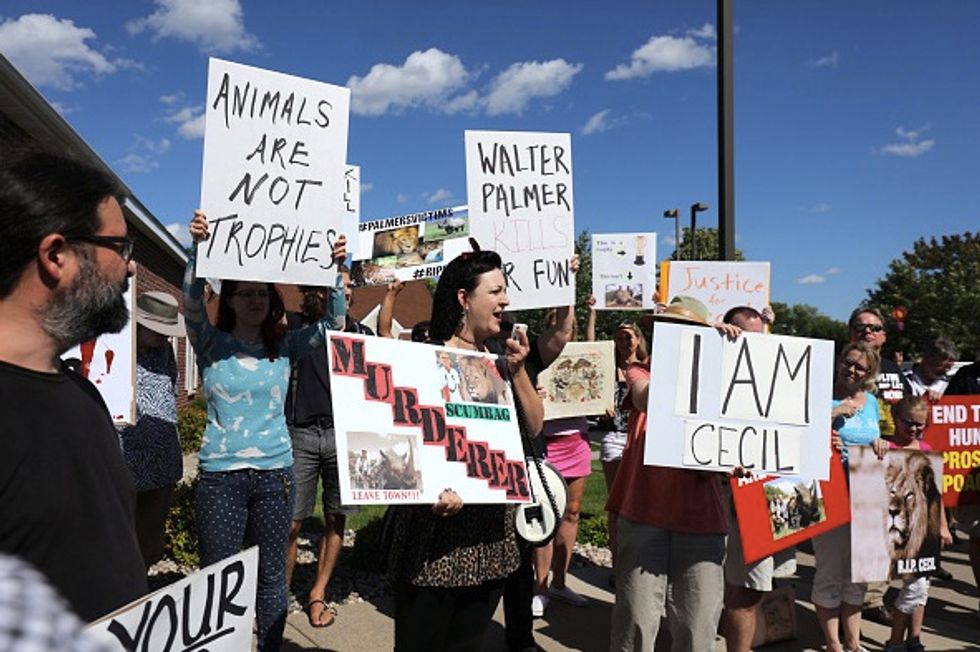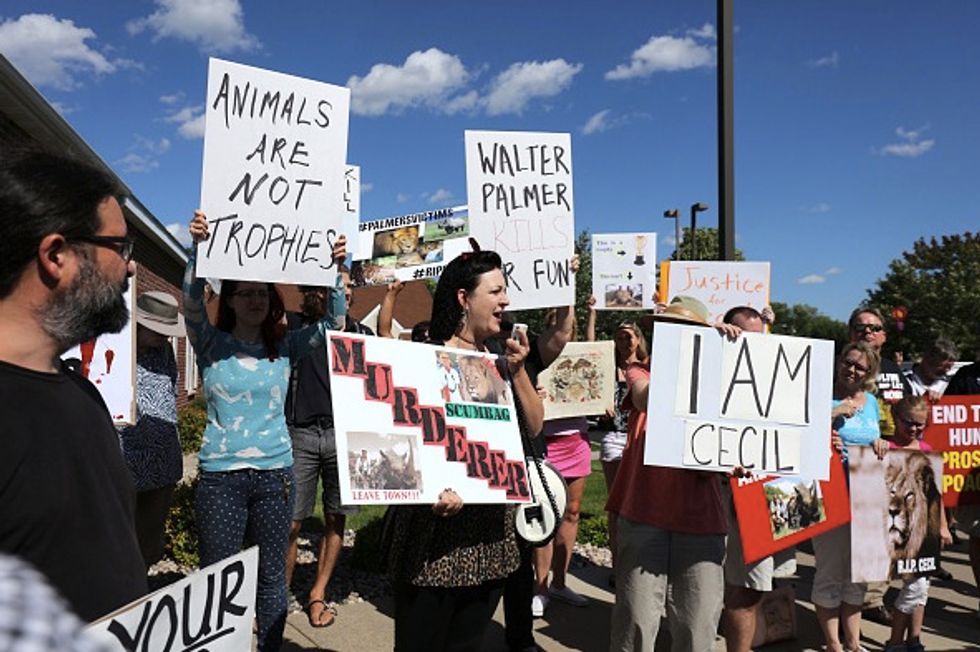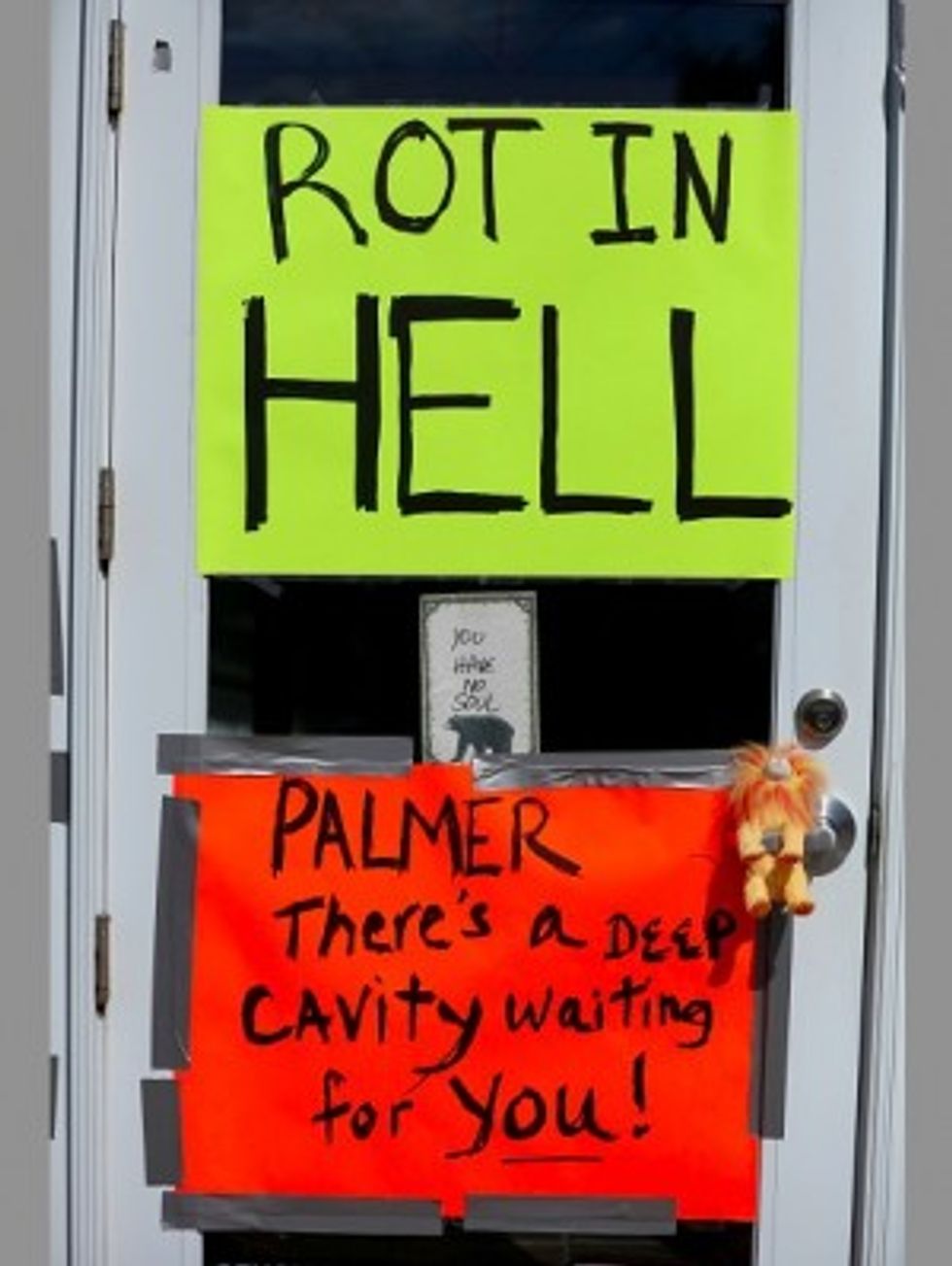
Rachel Augusta leads the protest of the killing of Cecil the lion in the parking lot of hunter Dr. Walter Palmer's River Bluff Dental Clinic on July 29, 2015 in Bloomington, Minnesota. (Image source: Adam Bettcher/Getty Images)

Goodwell Nzou can claim a number of critical statuses that most Americans — even almost au naturale thespians in PETA ads — cannot.
First off, he's from Zimbabwe.
Second, he's a doctoral student in molecular and cellular biosciences at Wake Forest University.
Third, he knows all about lions — and not the kind you see on YouTube or even at the zoo.

Nzou's Wednesday op-ed in the New York Times is turning some heads — and perhaps generating just a little bit of cognitive dissonance — because he's decidedly unsympathetic toward those outraged at Cecil the Lion's demise.
In fact, when Nzou heard the news about Cecil, he said "the village boy inside me instinctively cheered: One lion fewer to menace families like mine."
Did all those Americans signing petitions understand that lions actually kill people? That all the talk about Cecil being “beloved” or a “local favorite” was media hype? Did Jimmy Kimmel choke up because Cecil was murdered or because he confused him with Simba from “The Lion King”?In my village in Zimbabwe, surrounded by wildlife conservation areas, no lion has ever been beloved, or granted an affectionate nickname. They are objects of terror.
Nzou went on to tell how a prowling lion made life hell for him and his family, how one injured his uncle in an attack, how the predator "sucked the life out of the village: No one socialized by fires at night; no one dared stroll over to a neighbor’s homestead."
He also couldn't believe Cecil's killer has been painted as a villain, which amounted to "the starkest cultural contradiction I’d experienced during my five years studying in the United States."
Recalling the point at which the lion that menaced his loved ones finally was killed, Nzou didn't hold back. "[N]o one cared whether its murderer was a local person or a white trophy hunter, whether it was poached or killed legally," Nzou wrote. "We danced and sang about the vanquishing of the fearsome beast and our escape from serious harm."

He backed up his point of view by explaining from personal experience the damage that dangerous creatures in his country can dole out: Nzou lost his right leg from a snakebite when he was 11.
And while he acknowledged wild animals garner near-mystical significance from Zimbabweans, it's never kept his people from hunting them or letting others do so. Not that it matters to Americans who habitually "jump onto a hashtag train" and transform what's a normal — and necessary part of life — into an "absurdist circus," he wrote.
Nzou concluded his devastating column in this way
We Zimbabweans are left shaking our heads, wondering why Americans care more about African animals than about African people.Don’t tell us what to do with our animals when you allowed your own mountain lions to be hunted to near extinction in the eastern United States. Don’t bemoan the clear-cutting of our forests when you turned yours into concrete jungles.
And please, don’t offer me condolences about Cecil unless you’re also willing to offer me condolences for villagers killed or left hungry by his brethren, by political violence, or by hunger.
And with that:
—
Follow Dave Urbanski (@DaveVUrbanski) on Twitter
Dave Urbanski
Sr. Editor, News